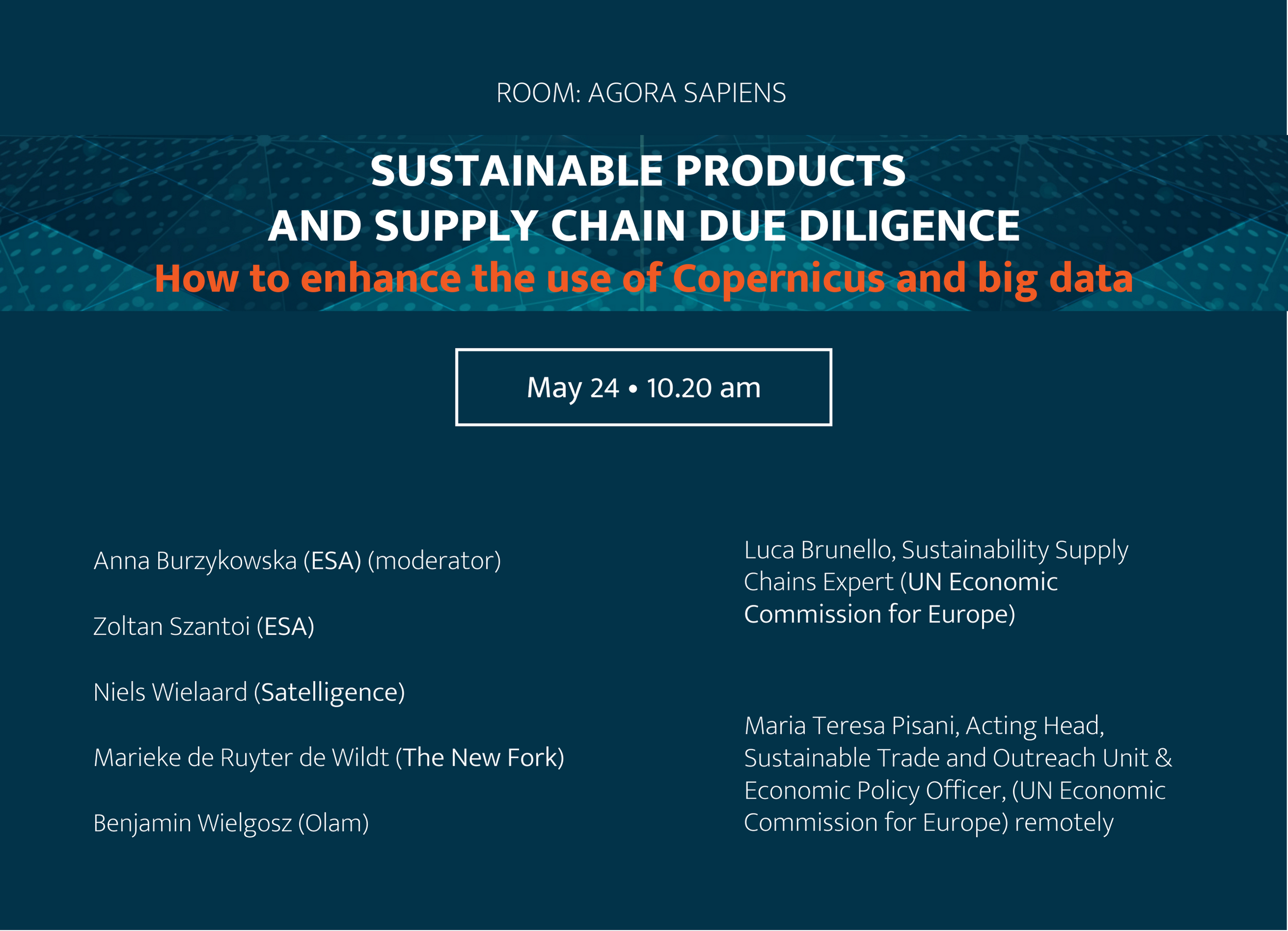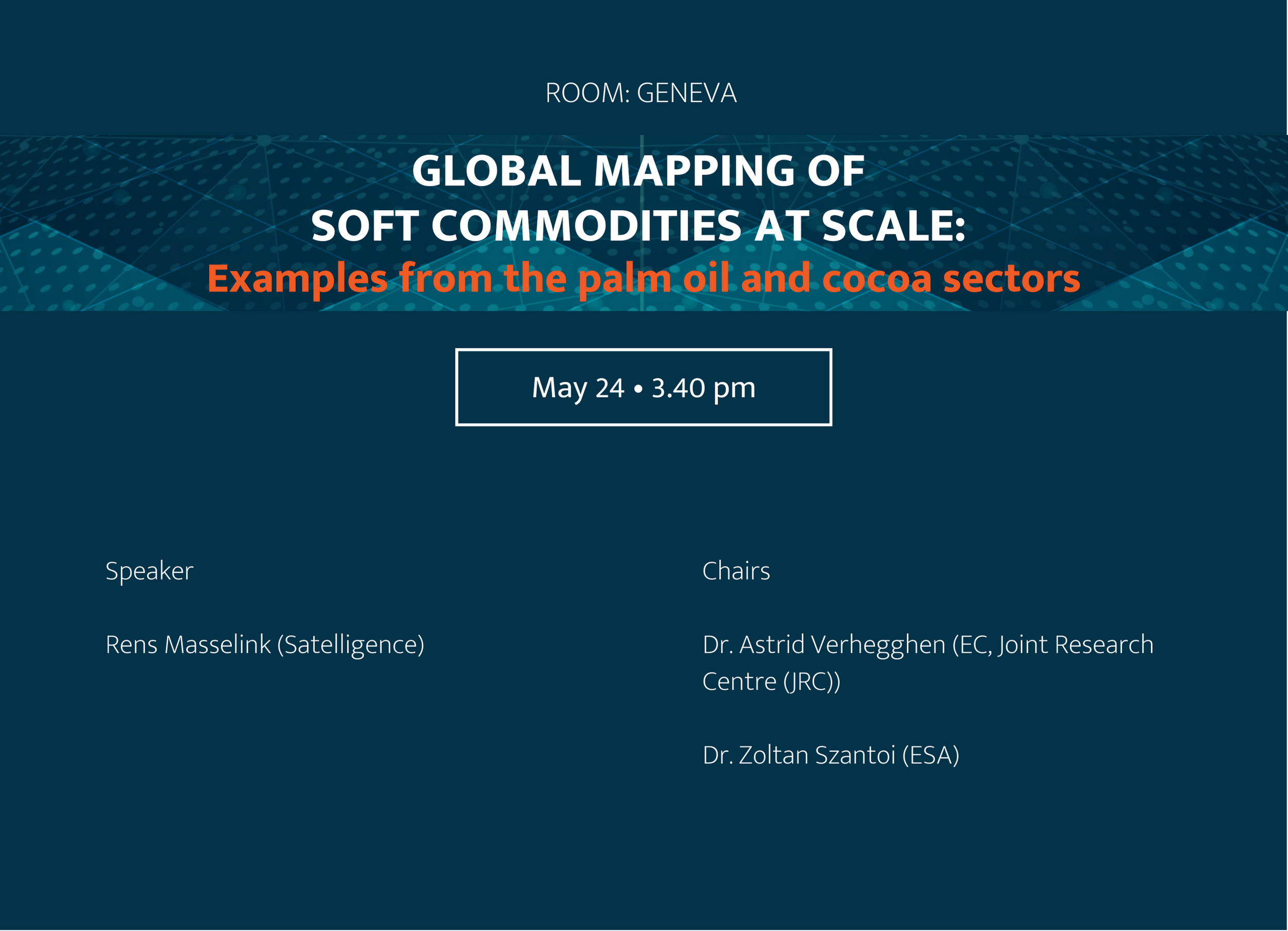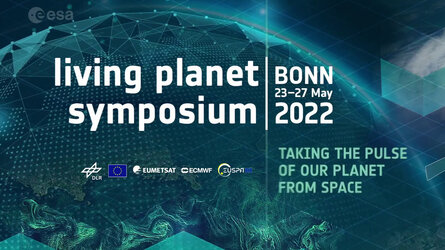🛰️ Next week we will be speaking at the European Space Agency – ESA #LPS Living Planet Symposium in Bonn. 🛰️
Our remote sensing expert Rens Masselink will present examples of agriculture monitoring in the palm oil and cocoa sectors, while our CEO Niels Wielaard will participate in the debate on Supply Chain Due Diligence, together with Zoltan Szantoi and Anna Burzykowska from European Space Agency – ESA, Luca Brunello and Maria Teresa Pisani from United Nations Economic Commission for Europe, Marieke de Ruyter de Wildt from The New Fork and Benjamin Wielgosz from Olam.

Global consumption of natural resources accelerates with increasing number of ecosystems requiring dedicated policy tools to curb unsustainable practices such as deforestation and forest degradation driven by the expansion of agricultural land used to produce specific commodities, namely cattle, cocoa, coffee, palm oil, soya and wood.
The novel initiatives and legislations such as European Sustainable Products Initiative and a forthcoming Directive on Sustainable Corporate Governance are meant to stimulate industrial transformation to green economy as well as empower the consumers to verify environmental claims regarding different products and their footprint measurement methods.
However the lack of reliable information on sustainability along industrial value chains is a major obstacle in delivering Green Deal and EU sustainability objectives.
Join this LPS22 “Deep Dive” session with representatives of food industry, United Nations, blockchain solutions developers and EO value adding to understand what steps they are taking to facilitate greener, more transparent and more sustainable supply chains and how to better utilise Earth Observation, emerging disruptive technologies and Big Data sources to reach EU green digital innovation objectives.

Expansion of agricultural areas is the largest contributor to deforestation worldwide. This is especially the case in the tropics where large swaths of forest are cleared for soy, palm oil, cocoa and other soft commodities.
Consumer goods manufacturers are incentivized to decrease deforestation within their supply chains by public pressure and campaigning NGOs. More recently, new legislation from e.g. the European Union obliges companies to stop sourcing from areas where deforestation has happened since a specified cut-off date.
In order for these companies to stop deforestation within their supply chains, two key pieces of information are required. First, companies need to know in detail their full supply chain, including all growers as well any potential traders in between. Second, they need to know if any (recent) deforestation is linked to any of the growers they source from. Both prerequisites represent a challenge for the vast majority of manufacturers.
While the latter problem has become increasingly manageable, due to recent advances in available satellite imagery, open source algorithms and cloud computing, knowledge of the full supply chain remains a complex problem. For many commodities, actual links between farms, production facilities and, ultimately, the consumer goods manufacturer’s products are unknown. In many cases, only the sourcing regions are known. This is a critical issue, since companies are now faced with possible sanctions if they cannot prove that their commodities are sourced from deforestation-free areas.
To address these challenges, at Satelligence we developed a combination of methods where we look at a combination of open data, multi-sensor satellite data, machine learning and auxiliary data to construct complete overviews of companies’ supply chains. These supply chains include smallholder areas for commodities such as palm oil and cocoa.
We will present some of the methods that we use to construct these supply chain overviews, and their related deforestation, and we will demonstrate how we scale these methods to the entire globe.
